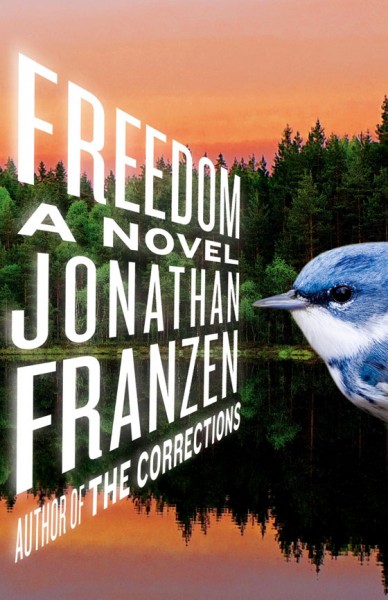Freedom, the long-awaited book by Jonathan Franzen, has met great critical acclaim. It is, at once, a portrait of an unhappy and dysfunctional family, as well as a commentary of our times.
Patty and Walter Berglund married young, moved into an (as-yet) "unyuppyish" neighborhood in St. Paul, and proceeded to have a family. Patty was an all-star athlete, whose career was benched by a knee injury. Her family, upper-class and artistic, was critical of her athletic interests. Her mother never attended any of her basketball games, and was emotionally remote and disapproving. Patty, in turn, becomes a competitive and needy parent and mother, showering her son, Joey, with the love she does not feel for her husband. Meanwhile, Jessica, her bright and responsible daughter, is ignored.
By contrast, Walter is the son of an alcoholic father and a frail, dependent mother. All the dreams of the mother are centered on her bright son. Walter, a nice guy who initially works for an environmental organization, is full of repressed anger. In college, he becomes a close friend and competitor to the musically gifted, rebellious, and misogynistic Richard. Richard feels like a brother to the straight-laced Walter. He even refuses a relationship with Patty to protect his friend from hurt.
Physically attracted to Richard, Patty marries Walter only because it is practical. By contrast, Walter is very much in love with her. Bring forth two children, the boy completely spoiled and the girl overlooked, give the marriage 15 years, and the stage is set for unhappiness, adultery, and strife.
Freedom is a difficult book to read. References to Tolstoy's War and Peace are made repeatedly. As Michiko Kakutani of the New York Times writes: "...there is some sort of parallel between the Walter-Richard-Patty triangle and the Pierre-Andrei-Natasha triangle in Tolstoy's great classic...(Franzen) does an agile job of tracing the constantly evolving relationships among his three main characters, as well (as) the dynamics between Walter and Patty, and their two children, Joey and Jessica." (August 15, 2010)
Jonathan Franzen tackles equally huge themes in this book. The unrest in this family reflects the lack of values in contemporary society. "Mr. Franzen shows us how his characters strive to navigate a world of technological gadgetry and ever-shifting mores, how they struggle to balance the equation between their expectations of life and dull reality, their political ideals and mercenary urges." (Michiko Kakutani, New York Times Book Review, August 15, 2010)
Freedom is a difficult book. The characters are unlikable, and it is difficult to sympathize with them. This was Franzen's intention. Thus the reader remains an observer, seeing the characters as a reflection of the society around them.
Jonathan Franzen has been compared to David Foster Wallace, Thomas Pynchon, Don DeLillo, and other post-modernists. He has also been praised by Oprah and recently been on the cover of Time (August 12, 2010). Freedom has been extolled by some critics as one of the great American novels. If for no more than the above claims, this book should be on your reading list. Love it or hate it, it is a great book club book, and promises a lively discussion.
Check Our Catalog


No comments:
Post a Comment
We review all comments and reserve the right to remove comments based on: profanity, irrelevance, spam, personal attacks and anything else contrary to our guidelines.